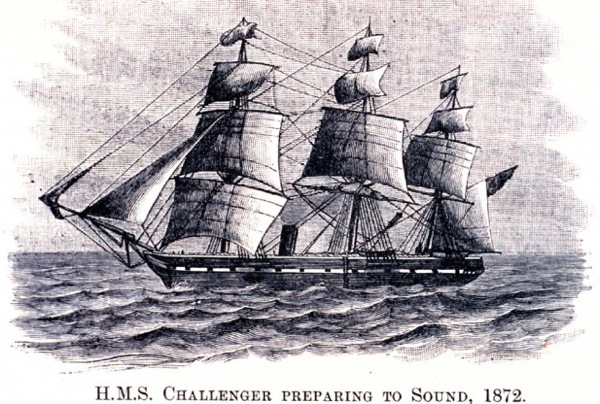135-Year-Old Data Helps Understand Climate Change
Ocean data collected over 135 years ago by the crew of the HMS Challenger oceanographic expedition has helped confirm global warming.
Researchers from NASA and the University of Tasmania used the data to provide further confirmation that humans have played a part in today’s changing global climate. The team combined the ship’s measurements of ocean temperatures with modern observations from the international Argo array of ocean profiling floats. They used state-of-the-art climate models to get a picture of how the world’s oceans have changed over the last century.
The Challenger voyage was the world’s first global scientific survey of life beneath the ocean surface. During this expedition, scientists measured ocean temperatures, lowering thermometers hundreds of feet deep on hemp ropes.
“Our research revealed warming of the planet can be clearly detected since 1873 and that our oceans continue to absorb the great majority of this heat,” said researcher Will Hobbs of the University of Tasmania’s Institute for Marine and Antarctic Studies and the Australian Research Council’s Centre of Excellence for Climate System Science.
“Currently, scientists estimate the oceans absorb more than 90 percent of the heat trapped by greenhouse gases, and we attribute the global warming to anthropogenic causes.”
Challenger’s measurements revealed that thermal expansion of sea water caused by global warming has contributed to about 40 percent of the total sea level rise seen in tide gauges from 1873 to 1955. The remaining 60 percent was likely to have come from the melting of ice sheets and glaciers.
“This research adds yet another suite of compelling data that shows human activity continues to have a dramatic influence on the Earth’s climate,” said Hobbs, lead author of the paper which was published in the latest edition of the journal Geophysical Research Letters.

No comments:
Post a Comment